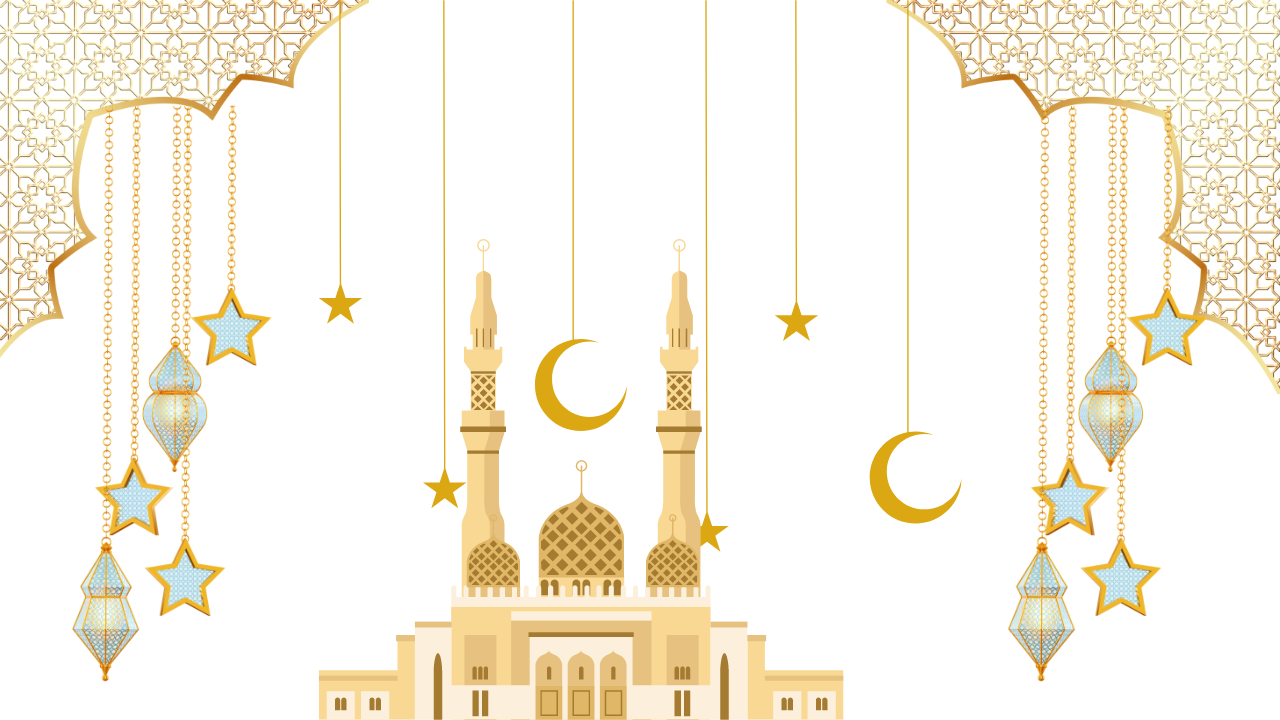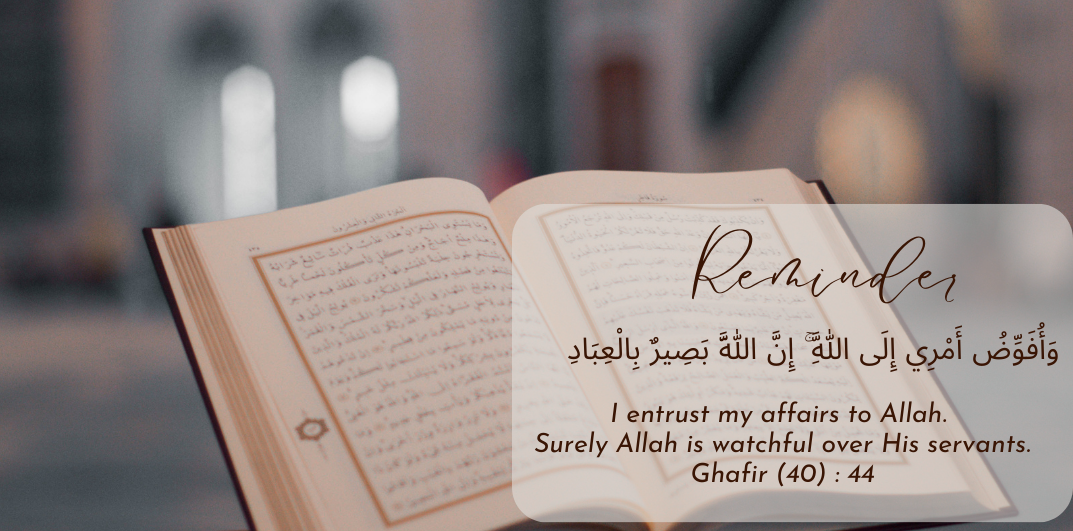Introduction
Islam is one of the world’s major religions, founded in the 7th century CE in the Arabian Peninsula. It is based on the teachings of the Prophet Muhammad, who is regarded as the final prophet in a long line of messengers. Central to Islam is the belief in one God (Allah) and the Five Pillars, which guide the faith and practices of its followers. These pillars include the declaration of faith (Shahada), prayer (Salah), almsgiving (Zakat), fasting during Ramadan, and pilgrimage to Mecca (Hajj). Understanding Islam involves exploring its rich traditions, scriptures, and the diverse cultures of its adherents across the globe.
At its core, Islam promotes values of compassion, justice, and community. The Quran, Islam’s holy book, serves as a guide for ethical conduct and spiritual growth. With over a billion followers worldwide, Islam emphasizes unity and encourages its practitioners to foster harmony within their communities. Whether you are seeking to learn about Islamic beliefs, practices, or its impact on society, understanding what Islam truly represents is essential for appreciating its role in the contemporary world
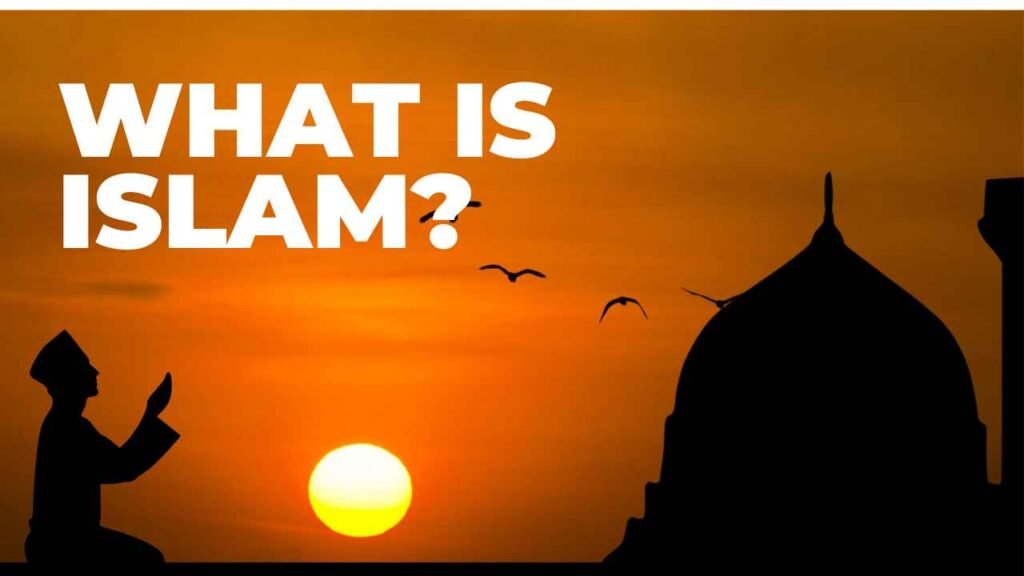
Table of Contents
Historical Context of Islam
Islam emerged in the 7th century CE in the Arabian Peninsula, a region characterized by a rich tapestry of cultural and religious traditions. The historical context of Islam is crucial for understanding its foundational beliefs and practices. Prior to the advent of Islam, the Arabian Peninsula was primarily polytheistic, with various tribes worshiping multiple deities. This environment was marked by social stratification and tribal conflicts, setting the stage for the transformative message brought by the Prophet Muhammad.
In 610 CE, Muhammad began receiving revelations from Allah through the Angel Gabriel, which would later be compiled into the Quran, the holy book of Islam. These revelations emphasized monotheism, social justice, and moral accountability, resonating with many who sought change in their society. By 622 CE, the migration (Hijra) of Muhammad and his followers to Medina marked a significant turning point, as Islam began to flourish and establish itself as a comprehensive way of life.
The subsequent conquests and spread of Islam across the Middle East, North Africa, and beyond during the following centuries solidified its status as one of the world’s major religions. Understanding this historical context is essential for grasping the evolution of Islam and its impact on global culture and civilization.
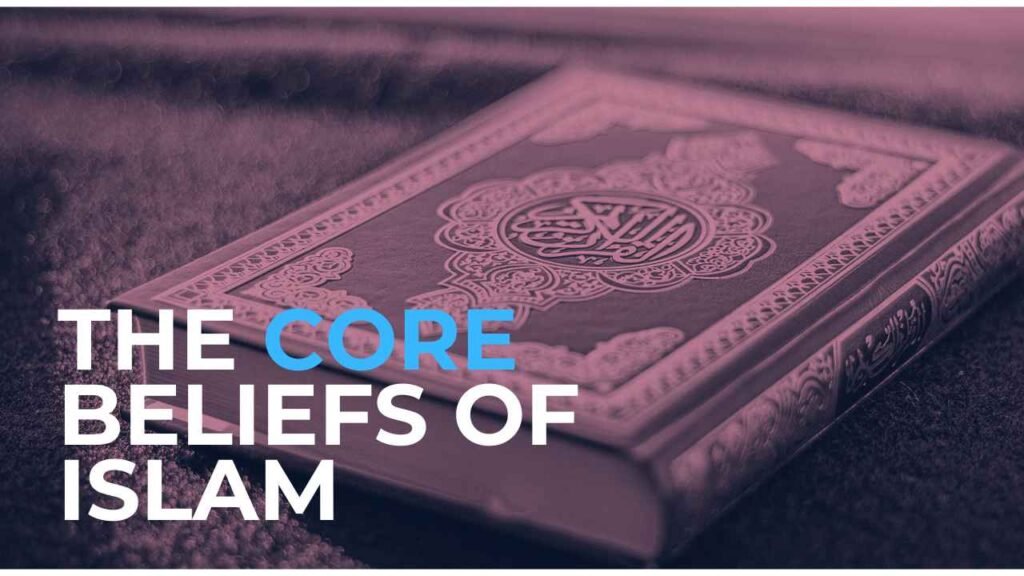
The Core Beliefs of Islam
Monotheism: The Concept of Allah
Monotheism, defined as the belief in a single, all-powerful deity, is a fundamental principle in Islam known as “Tawhid.” Central to this belief is the concept of Allah, the Arabic word for God. In Islam, Allah is not only the creator of the universe but also a compassionate and merciful entity who guides humanity. The significance of monotheism in Islam cannot be overstated, as it shapes the faith and practice of millions around the world.
The concept of Allah encompasses various attributes, such as omniscience, omnipotence, and benevolence. Muslims believe that Allah is unique and incomparable, with no partners or equals. This strict adherence to monotheism fosters a deep sense of spirituality and devotion among followers.
In daily prayers and rituals, the acknowledgment of Allah’s oneness is paramount, reinforcing the belief that all actions should be directed towards serving and worshiping Him. Understanding monotheism and the concept of Allah is essential for grasping the core tenets of Islam and its influence on the lives of its adherents.
Prophets in Islam
Prophets in Islam hold a significant place in the faith, serving as messengers of Allah who convey His guidance to humanity. Islam teaches that Allah has sent numerous prophets throughout history, each chosen to deliver His message to different communities.
Among these, Muhammad is regarded as the final prophet, often referred to as the “Seal of the Prophets.” His teachings and the revelations he received form the basis of the Quran, the holy book of Islam.
The belief in prophets is a cornerstone of Islamic theology, and Muslims recognize several key figures, including Adam, Noah, Abraham, Moses, and Jesus, among others. Each prophet played a vital role in shaping the moral and spiritual landscape of their respective communities.
In Islam, these prophets are respected and honored, and their stories illustrate the importance of faith, perseverance, and obedience to God’s will. Understanding the role of prophets in Islam is essential for comprehending the religion’s teachings and its emphasis on divine guidance throughout history.
The Importance of Quran in Islam
The Importance of the Quran in Islam cannot be overstated, as it serves as the ultimate source of guidance for Muslims around the world. Believed to be the literal word of Allah, revealed to the Prophet Muhammad over 23 years, the Quran is not just a religious text; it is a comprehensive guide that covers all aspects of life, including moral, spiritual, and social dimensions. Its teachings emphasize the core tenets of Islam, such as monotheism, compassion, and justice, making it central to the faith.
The Quran is recited in Arabic and is considered a literary masterpiece, showcasing profound wisdom and eloquence. Muslims engage with the Quran through regular recitation, reflection, and memorization, which deepens their spiritual connection and understanding of its teachings.
Additionally, the Quran provides a framework for personal conduct and community ethics, influencing laws and cultural practices in many Islamic societies. Understanding the importance of the Quran is crucial for anyone seeking to grasp the essence of Islam and its impact on the lives of its followers.
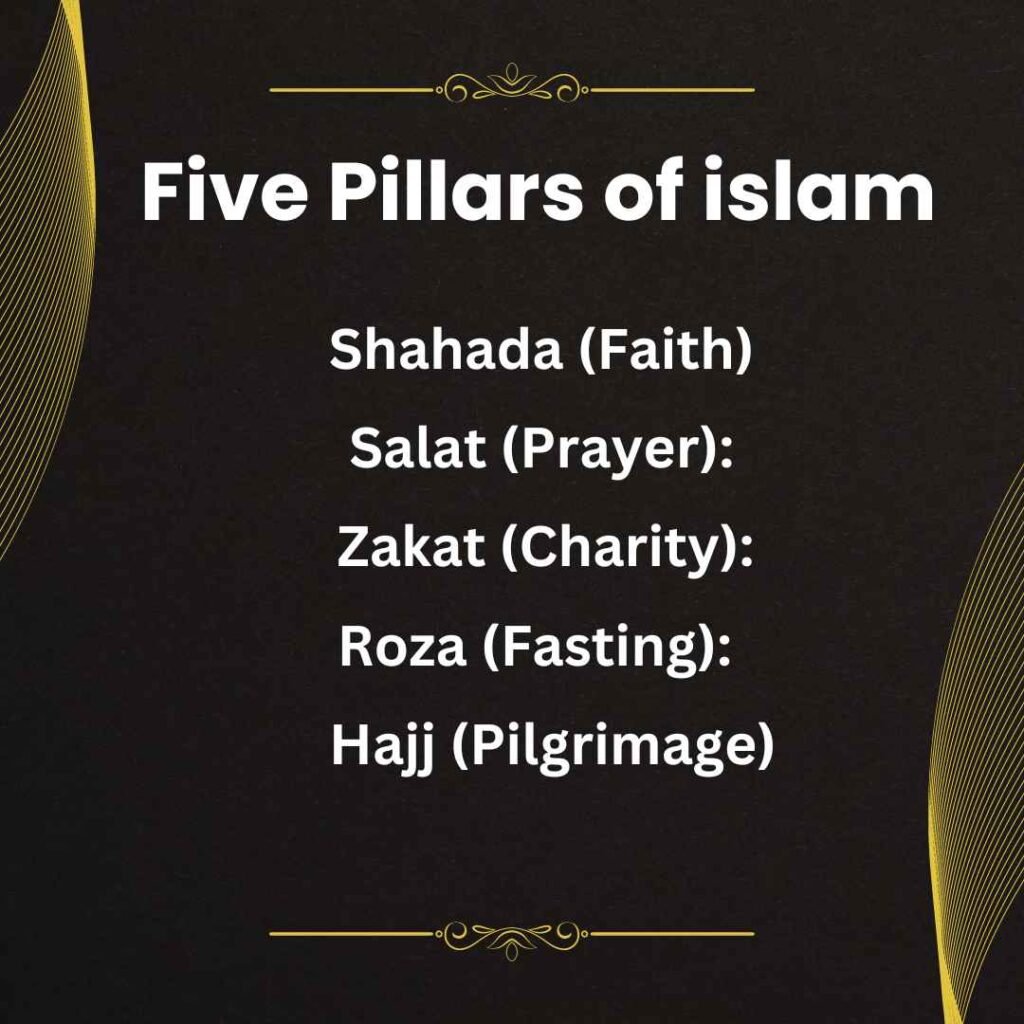
The Five Pillars of Islam
- Shahada (Faith): The declaration of faith, stating that there is no god but Allah and Muhammad is His prophet.
- Salat (Prayer): Performing ritual prayers in the proper way five times each day.
- Zakat (Charity): Giving to charity and aiding the poor.
- Roza (Fasting): Fasting during the month of Ramadan.
- Hajj (Pilgrimage): Making a pilgrimage to Mecca at least once in a lifetime if one is able.
Islamic Practices and Rituals
Islamic practices and rituals are integral to the faith, providing a structured way for Muslims to express their devotion and connect with Allah. Central to these practices is the concept of worship, which encompasses various rituals that reinforce the core beliefs of Islam. From daily prayers (Salah) to the observance of Ramadan, each ritual plays a significant role in the spiritual lives of Muslims.
Daily Prayers
Daily prayers, or Salah, are a fundamental aspect of Islam, representing a direct line of communication between Muslims and Allah. These prayers are performed five times a day and serve as a vital expression of faith, discipline, and devotion. The practice of daily prayers is rooted in the teachings of the Quran and the traditions of the Prophet Muhammad, making it a cornerstone of Islamic worship.
Each of the five daily prayers has specific timings and rituals, including the recitation of verses from the Quran and physical movements such as bowing and prostration. This structured routine helps Muslims cultivate mindfulness and gratitude throughout their day.
Additionally, daily prayers foster a sense of community, especially when performed in congregation at mosques. Understanding the significance of daily prayers in Islam is essential for grasping the rhythm of Muslim life and the profound connection it nurtures between individuals and their Creator.
Ramadan and Eid Celebrations in Islam
Ramadan and Eid celebrations are among the most significant observances in Islam, marking a time of spiritual reflection, community, and festivity. Ramadan, the ninth month of the Islamic lunar calendar, is a sacred period during which Muslims fast from dawn until sunset, abstaining from food, drink, and other physical needs. This practice promotes self-discipline, empathy for the less fortunate, and a deeper connection to Allah through prayer and reflection.
At the end of Ramadan, Muslims celebrate Eid al-Fitr, a festive occasion that signifies the conclusion of the fasting month. Eid celebrations include communal prayers, festive meals, and the giving of gifts and charity (Zakat al-Fitr) to those in need.
This joyous occasion strengthens community bonds and encourages gratitude and generosity. Understanding the significance of Ramadan and Eid in Islam is essential for appreciating the rich cultural and spiritual traditions that unite Muslims worldwide during this special time.
Holy Texts
The Quran
The Quran is the holy book of Islam, believed to be the word of God as revealed to Muhammad by the archangel Gabriel.
Hadith
The Hadith is a collection of sayings, actions, and approvals of the Prophet Muhammad, serving as a guide for interpreting the Quran.
Branches of Islam
Sunni
The largest branch, Sunnis believe in the elected caliphs as successors to Muhammad.
Shia
Shia Muslims believe that only the descendants of Muhammad through his cousin and son-in-law Ali are the true successors.
Conclusion
Islam is a rich and diverse religion with a profound impact on its followers’ lives. Understanding its core beliefs, practices, and texts can foster greater appreciation and respect for this global faith.
For More Blogs/Articles About Islam: ClickHere
For Online Islamic Studies/Courses/Online Tutors: Click https://virtualquranictutors.com/Here
Explore Digital Diaries for More Blogs

